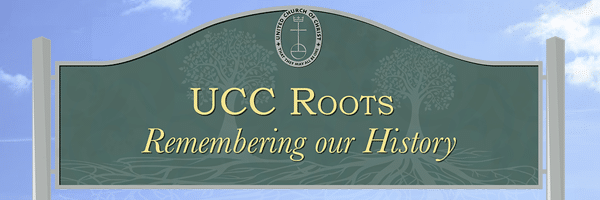The Deaconess witness in the German Reformed Church
 The deaconess movement, rooted in the early church, was a non-ordained ministry for women. In the 1800s it was very popular among German immigrants arriving in North America and spread among churches in the Midwest. In the United Church of Christ we often hear about German Evangelical Deaconesses, but there were also important developments in the German Reformed Church.
The deaconess movement, rooted in the early church, was a non-ordained ministry for women. In the 1800s it was very popular among German immigrants arriving in North America and spread among churches in the Midwest. In the United Church of Christ we often hear about German Evangelical Deaconesses, but there were also important developments in the German Reformed Church.
Johanna M. Baur, born in Michigan in 1862, had a conversion experience and joined the Methodist Episcopal Church. At a camp meeting in 1891, she heard about the importance of deaconesses. Soon she moved to Cincinnati to join the Elizabeth Gamble Deaconess Home and Christ Hospital. She became associated with the German Methodist Mother House and Bethesda Hospital in Cincinnati. In 1900, she was asked to go to Terre Haute, Indiana, to found a nursing school.
Meanwhile in eastern Pennsylvania, a German Reformed pastor, Abraham Koplin, suggested that the German Reformed Church needed to bring deaconess services to eastern Pennsylvania. By 1903, three “Classes” of the Eastern Synod – Lehigh, Eastern Pennsylvania, and Tohickon – were granted a charter to incorporate the “Phoebe Deaconess and Old Folks Home” (in Allentown). “Phoebe” is a deaconess mentioned in Paul’s letter to the Romans.
After property was purchased in 1904 Johanna Baur was called to serve as the first house mother. Two local deaconesses were consecrated in 1908. Although Baur was not paid, the Phoebe Home sent the Bethesda Hospital $30 a month for her services in Allentown.
Unfortunately, in 1910 Baur left Phoebe Home to care for her mother, yet her pioneering work lives on. Phoebe Ministries continues today as an organization affiliated with the United Church of Christ.
It is amazing what one woman can accomplish when guided by the Spirit. Johanna Baur always said, “I never regret that I had the pleasure of organizing the Phoebe Home. The Lord stood by me and the undertaking was a success.”
Contributor: Caroline Dunleavy
Related News
Planning for Earth Month: Resources for Congregations
April is Earth Month, and for congregations, it can be a great time to further discern how...
Read MoreBodily Autonomy Means Every-BODY
Advocacy and Action for Women's and Gender Justice Local events stir thoughts and...
Read MoreAn ally experiences PRIDE in the CLE
Advocacy and Action for Women's and Gender Justice Local events stir thoughts and...
Read More


